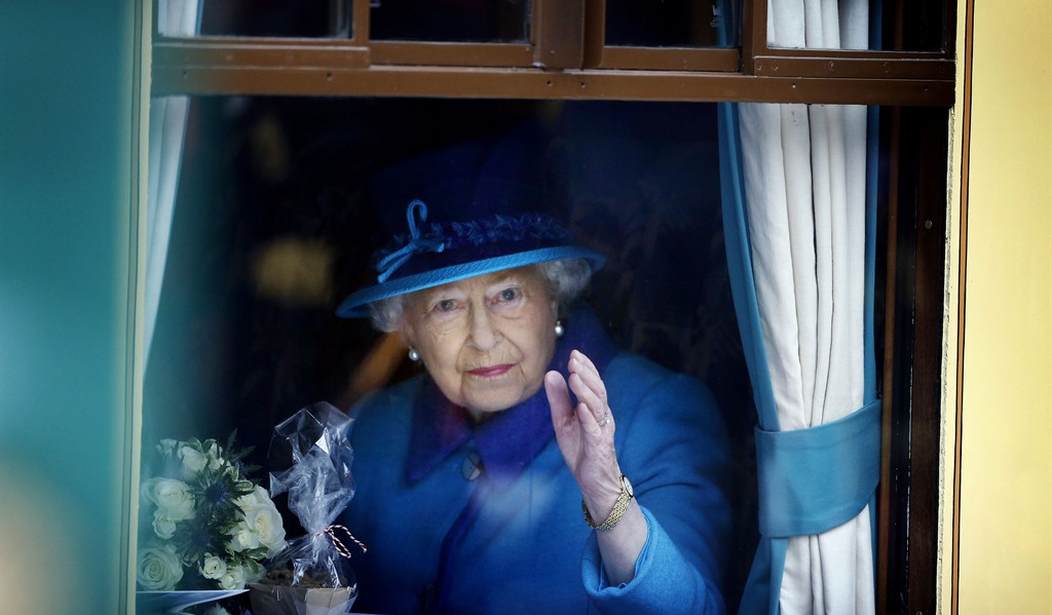And still busy at work, with hundreds of public appearances every year and reading official papers every day in red boxes and meeting with the prime minister every week. The sovereign, as Walter Bagehot wrote in "The English Constitution" some 150 years ago, has "the right to be consulted, the right to encourage and the right to warn."
Exactly how Elizabeth II has exercised these rights with her 12 prime ministers from Winston Churchill (born 1874) to David Cameron (born 1966) has not been revealed by any of them, or by heads of government of her other 15 realms from Canada and Australia to St. Kitts and Nevis.
The Queen lacks political power, but she is the most visible example of how a constitutional monarch can provide stability and a national rallying point in the way seldom available to a president or prime minister in a republic. She has been, as Margaret Thatcher's official biographer Charles Moore writes, "a figure of peace, courtesy and trust," one which "mixes morality with a touch of cunning."
That was apparent in her trip to the Irish Republic in 2011 or when, on the eve of the referendum on Scottish independence, she let herself be seen as encouraging -- or warning -- Scots to "think very carefully" about their vote. It has been apparent in her active involvement as head of the Commonwealth of Nations, which has expanded during her reign from eight nations to 53, with about one-third of world population.
"The combination of monarchy and democracy helps a country be free and secure at the same time," Moore claims, citing four of Elizabeth's realms (Britain, Canada, Australia, New Zealand) and four others (the Netherlands, Denmark, Sweden, Norway).
Recommended
This is in vivid contrast to opinion a century ago. One of the things that vanished in advanced countries after World War I was the idea that monarchy -- not constitutional monarchy, but one where the monarch exercised governmental powers -- conferred legitimacy on the state. The theory was that the masses would regard one who came to his position by blood as having authority by act of God.
This notion was thoroughly discredited by the way that monarchs with real power -- the erratic Kaiser Wilhelm II, Queen Victoria's oldest grandchild, and the dim Tsar Nicholas II, husband of her favorite granddaughter -- made decisions that led to a war that killed tens of millions. Nicholas lost his life and Wilhelm lost his throne, as did the heir of the Kaiser-King Franz Joseph of Austria-Hungary, whose reign of 67 years and 355 days may be equaled by Elizabeth in January 2020.
The subsequent history of Germany, Russia, Austria and Hungary shows that there are worse forms of government than hereditary monarchy. Victoria, as Moore notes, was "furiously opposed to race prejudice," treating Indian maharajas as equally royal and her Jewish subjects as equally British. Wilhelm never demonized or persecuted Jews, and Franz Josef three times vetoed the election of an anti-Semitic mayor of Vienna.
Nicholas, for all his faults, was not a mass murderer like Stalin. The Armenian massacres of 1915-1918 were the work not of the Ottoman sultan, by then a figurehead, but that of the Young Turk leaders Enver, Cemal and Talaat.
Monarchs, it seems, tend to have an instinctive aversion to genocide and to catering to bigotry. That's not true of those who run people's republics and national and/or socialist dictatorships.
Queen Elizabeth in this respect has followed her great-great-grandmother's good example. Her assiduous interest in African Commonwealth nations has been attested to by many of their leaders. She personally chose to award the Order of Merit to Nelson Mandela (born himself to a Xhosa royal family).
The problem with monarchy, constitutional or otherwise, is that its success depends on the character of the monarch. Elizabeth has carefully disciplined herself since childhood. As her sister Princess Margaret observed, "Lilibet has always known the right thing to do."
For all its virtues, monarchy would never suit us small-R republican, small-D democratic Americans. But we can partake vicariously in celebrating the achievement of our Anglosphere cousins' sovereign. So let's join them in saying, "God save the Queen."
























Join the conversation as a VIP Member